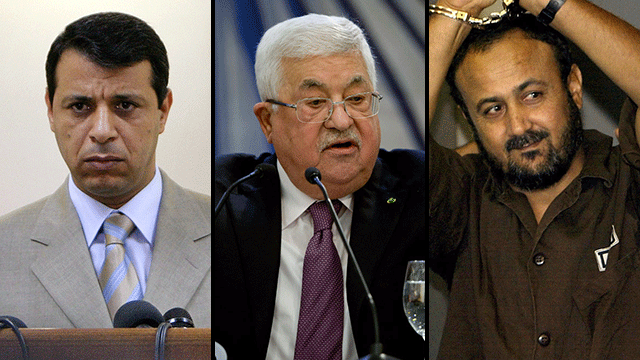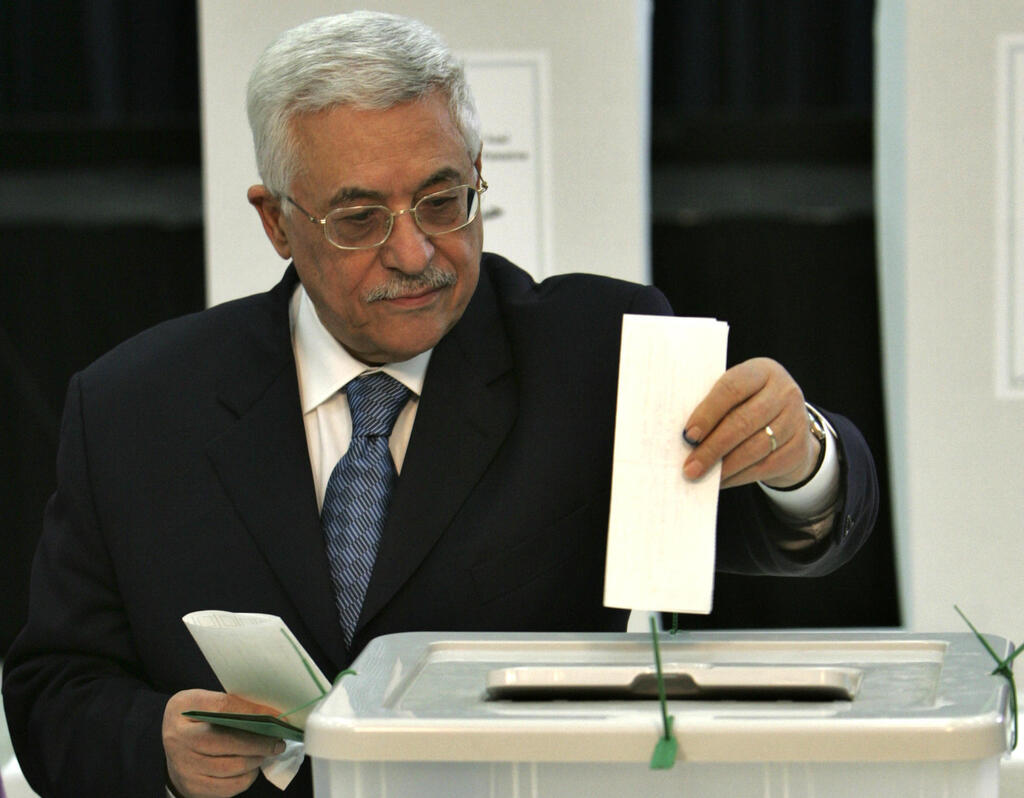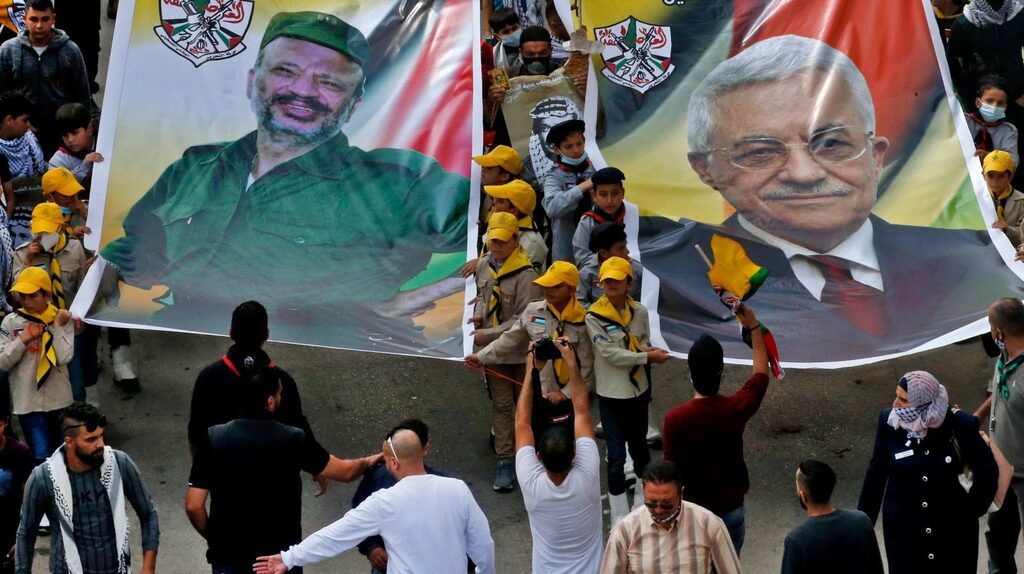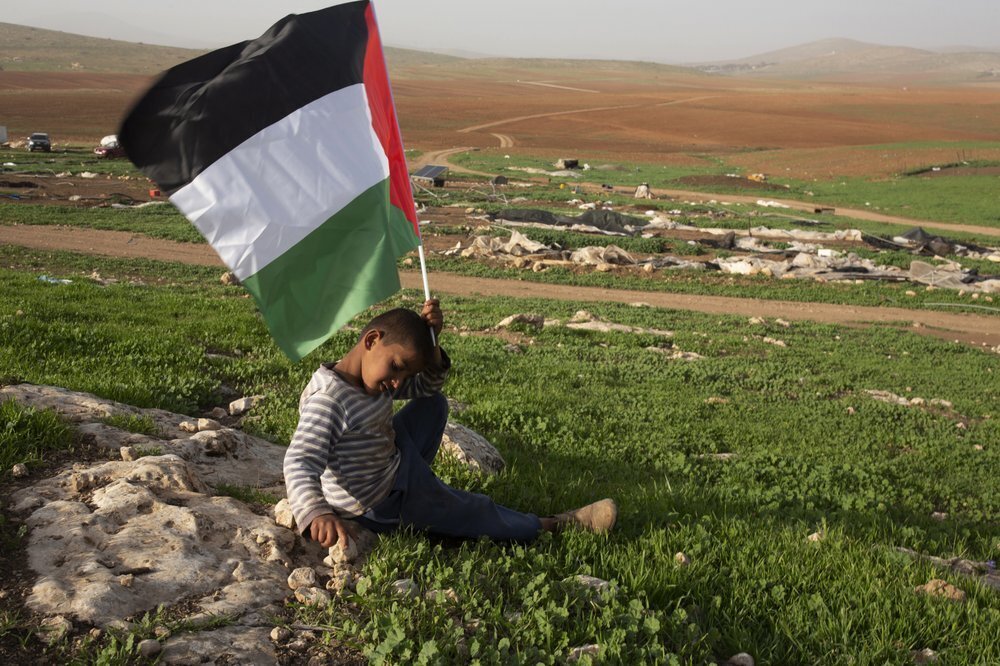Thirty-six parties will run in the Palestinian parliamentary elections in May, if they actually take place that is.
This is a massive number of candidates, all of whom have been required to pay a serious personal price in order to run.
4 View gallery


Mohammed Dahlan, left, and Marwan Barghouti, right, are challenging the domination of Fatah leader Mahmoud Abbas in Palestinian politics
(Photo: AP, Reuters)
Candidates must resign from their job (unless it is in the public sector) and wait for their resignation to go into effect, thereby running the risk of not being able to come back to their workplace if they lose.
They can also expect to face an array of administrative and social sanctions for their respective political affiliations, such as appearing on the list of breakaway Fatah candidates headed by Marwan Barghouti, who is currently serving time in an Israeli jail.
Palestinians have also understood the importance of this vote, with voter registration being recorded at a record 93.3%.
Therefore, we must focus all of our wills and efforts into making this election an opportunity for change, to end the legitimization of the current state of affairs and do away with the endless infighting.
Even though the vote will take place within the suffocating confines of the Oslo Accords, it must first and foremost work to end the occupation and gain the freedom, sovereignty and independence the agreements have failed to bring.
4 View gallery


Palestinian President Mahmoud Abbas casts his ballot in Ramallah for the 2006 Palestinian elections
(Photo: AP)
The Palestinian issue and the organization representing it - PLO lead by Mahmoud Abbas - have been forced to the sidelines as of late.
The occupation grows, Israel's settlements expand and the divisions among the Palestinians deepen.
This is the reason why the PLO is fighting for its continued existence, symbolized by its support for a united national list while still backing Abbas for the presidency.
But some of the names of the 36 parties competing, names such as "Freedom," "Union," "Jerusalem" and "New Dawn," show that the Palestinians want change now.
The Palestinians in the West Bank live in isolated communities, while their brothers in Gaza are completely cut off. Our brothers in Israel are forced to live as second class citizens, a reality made more clear by the Nation-State Law.
Half of the Palestinian people leave as refugees, with many of their host countries refusing to recognize them and give them even the most basic of rights.
4 View gallery


Fatah supporters carry images of current leader Mahmoud Abbas and his late predecessor Yasser Arafat at a West Bank march to mark the anniversary of Arafat's death
(Photo: Getty)
Since the Oslo Accords, the Palestinians have never had strong leadership to represent them or their national aspirations. The agreements with Israel minimized the Palestinian issue and divided their land and their people.
At this stage, there must be not just reforms but also a complete overhaul of Palestinian society, not just on politically, but also economically, socially and culturally.
I believe that voters will cast a ballot for parties they see as able to truly bring change and not only spout slogans.
The public will back those who can deliver a concrete plan to achieve the most we can right now, while striving for the fulfillment of out national historical rights.
If the elections are called off, the current regime will have lost its last remaining shreds of legitimacy.
To allow Palestinians to live free and respectable lives, change is necessary. They have a right to live under a government that provides them with freedom and justice and that fights corruption.
True separation of powers must take place, especially regarding the judiciary that has become completely subservient to the executive.
There are those who wish to preserve this sorry state of affairs, while others wish to revive solutions that would leave the Palestinians as a group with no identity or rights.
But there are also those who strive for national and democratic change to supply the meets of the Palestinian people, safeguarding their interests and their rights.
This is the beginning of the end of an era in Palestinian politics. And the elections and their results aside, no one can stop the coming change.
Hani Al-Masri is director general of Masarat, the Palestinian Center for Policy Research and Strategic Studies. This piece was originally published in the Palestinian newspaper Al-Quds and translated to Hebrew as part of a project initiated by the Van Leer Jerusalem Institute, The Forum for Regional Thinking and the I'lam Media Center


